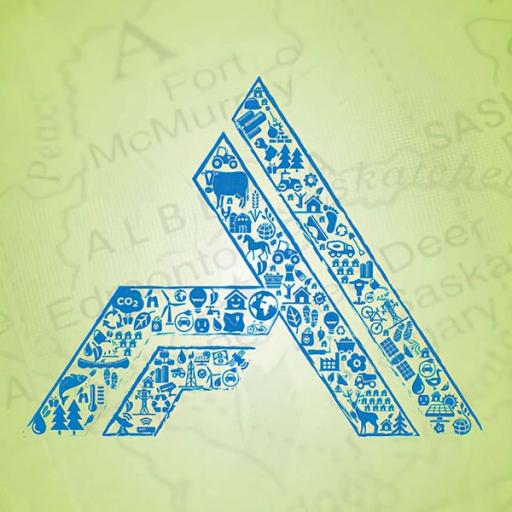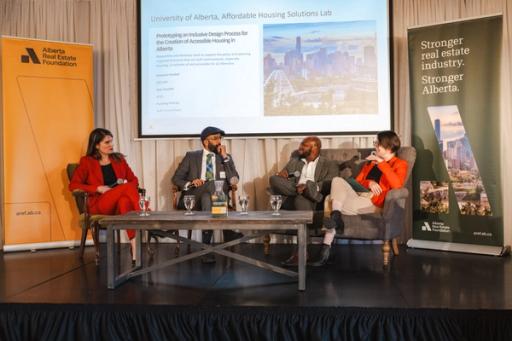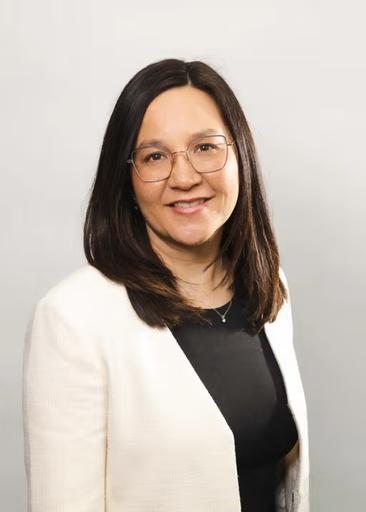March 13, 2019
March 2019 Community Investment

The Board of Governors of the Alberta Real Estate Foundation approved $861,000 in community investment projects at their recent meeting.
The Alberta Real Estate Foundation (AREF) supports initiatives that enhance the real estate industry and benefit the communities of Alberta. AREF was established in 1991 under the Alberta Real Estate Act. Since then, it has awarded 20 million dollars in community and industry grants to over 600 projects across Alberta.
Projects approved at the March meeting include:
Alberta Emerald Foundation – Provincial Environmental Recognition Program
The Alberta Emerald Foundation is Alberta’s environmental good-news storytellers connecting the province’s environmental leaders and providing a voice to share their positive examples to inspire others. The Foundation is committed to providing year-round programming that engages, informs, and emboldens environmental stewardship in Alberta.
Alberta Real Estate Foundation – The Next Step: Examining the Real Estate Foundation Revenue Model & Modernization
The Alberta Real Estate Foundation (AREF) was formed in 1990-1991. Next year, the Foundation will celebrate 30 years and now is the time for reflecting on what has worked well with the AREF model to date and how the Foundation can position itself in a changing world of payments, interest rates and community investment and continue to innovate for its next 30 years. This project will provide the Foundation the opportunity to work with stakeholders to imagine better workflows, better consumer protection and modernize the Alberta Real Estate Foundation model.
Center for Public Legal Education Alberta – Residential Tenancies Legal Information Program
The Residential Tenancies Legal Information Program is the best source of easy to understand, accessible and accurate legal information about landlord and tenant matters in Alberta. The program provides vital information to Albertans online, in print and in person.
Pembina Institute – Landowners Guide to Oil and Gas Phase III
Landowners have a number of concerns with abandoned (but not reclaimed), orphaned and/or inactive sites on their property. Backlogged oil and gas liabilities pose fiscal, environmental, and health risks. The recent Supreme Court ruling on the Redwater case means that operators must fulfil their environmental obligations before paying back creditors. However, when an operator goes bankrupt there is a strong likelihood that the revenues generated from liquidating assets will not cover cleanup costs —and the Orphan Well Association’s (OWA) inventory will continue to grow. The Landowners Guide will educate landowners on how to navigate the complex system of abandoned wells on their property.
The Natural Step Canada’s Energy Futures Lab – Energy Futures Roadshow
The Energy Futures Roadshow is an initiative to strengthen community resilience in Alberta by helping communities explore the opportunities and challenges arising from energy transition. It harnesses the combined knowledge, skills and networks of the Energy Futures Lab Fellows and the assets of the Energy Futures Lab to create a program tailored to the community’s interests and delivered in collaboration with the host community. The engagement will typically include a series of workshops over a few days with a diversity of community members, including businesses, governments, schools, economic and community developers and the public. Roadshow communities will be invited into a support network to facilitate ongoing learning and sharing of lessons, collaborative projects and action across communities. The project also includes direct engagement with rural community leaders.
University of Calgary, Canadian Energy Systems Analysis Research (CESAR) Initiative – Mobility-as-a-Service and Parking in Alberta and Canada: Implications for the Real Estate Industry
Mobility-as-a-Service (MaaS) describes a shift away from personally-owned modes of transportation and towards mobility solutions that are consumed as a service. MaaS is being made possible by massive investments in the synthesis and integration of automation, connectivity, electrification and sharing in vehicles. Given the movement towards MaaS and its potential disruption of parking in Canada, it is important to be able to quantify the amount and value of the land that could be released for other uses, as well as the potential foregone capital and operating costs of providing and maintaining parking infrastructure. To address this need, CESAR will conduct the research and carry out the analyses needed to first provide an inventory of parking supply in Canada and in Alberta. These data will then be combined with estimated unit costs for the building and maintaining of that inventory. The report will end with a discussion of the potential implications of MaaS on the real estate sector in Alberta and across Canada.
University of Calgary, Haskayne School of Business – Anchor Institutions: Diversifying economic growth engines for Calgary’s urban revitalization
This interdisciplinary project will study a new development solution based on anchor institutions to revitalize Calgary’s declining urban core. The economic downturn has brought considerable negative impacts on the urban core represented by the high vacancy rate of downtown’s Class-A office buildings and dilapidated housing and aging infrastructure in the urban core areas. To develop solutions to these challenges, the project will 1) conduct research on best practices of urban revitalization catalyzed by anchor institutions, 2) study supporting planning policies (e.g., financial incentives, development regulations), and 3) produce development scenarios through interdisciplinary studio courses.
University of Calgary, The School of Public Policy – AirBnB and the Secondhand Economy
This project will research the second-hand housing market will seek to improve understanding of the impacts and trends of home sharing services such as Airbnb, particularly on rental and housing markets, with a focus on Calgary and other cities in Alberta. Specifically, the project will seek to understand the main impacts of home sharing in Calgary and factors influencing these impacts; what it means for home ownership and affordability and community characteristics; what are the trends and what might the market and its effects look like in the future; what are similar cities doing to address related issues; and what are policy options for the City of Calgary to develop a suitable framework for regulating the market and how might such a framework be implemented?
University of Calgary, The School of Public Policy – Managing End of Life of Oil and Gas Wells
The School of Public Policy continues its research into the growing problem of orphaned and abandoned oil & gas wells. The project will advance research on effective and equitable policy approaches to address public and private challenges from these wells.
Topic
Similar News


